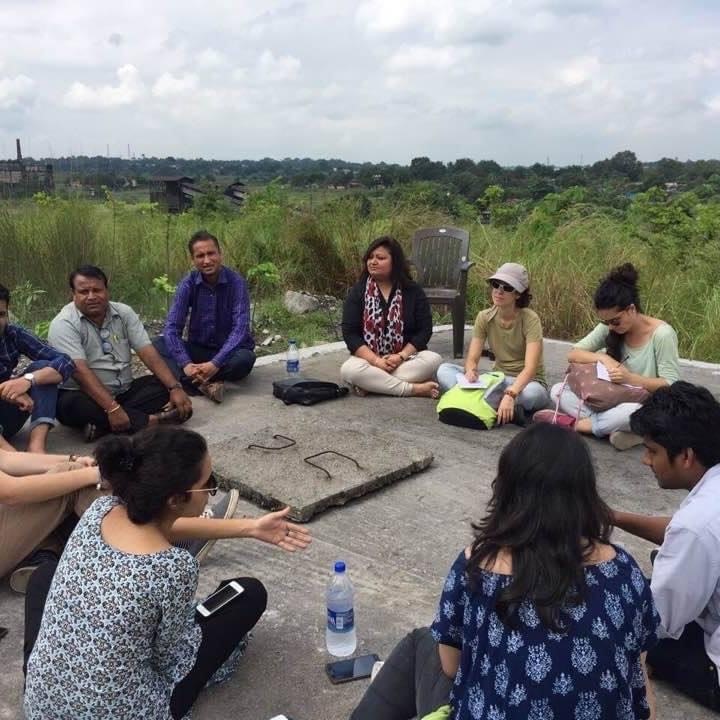Author: Sapna A. Narula, Professor & Dean, School of Management Studies, Nalanda University, India
Teaching sustainability and CSR always came with its own challenges. My experiences into teaching the subjects date back to the initial days when I started teaching sustainability for the first time in 2009 to the students of MBA (Business Sustainability). I was running marketing and business strategy courses too in parallel classes. Sometimes I ran into dilemmas wherein my mind was boggled with conflicting theories of marketing (consume more, sell more) and sustainability (resource efficiency). However, this challenge was overcome as I learnt to converge the two disciplines in favour of environmental and social sustainability notwithstanding the marketing beliefs of serving consumers’ profitably. Another big challenge was lack of text books, reading material and cases in local context of India and other developing countries. Other challenges such as interdiscplinarity, problem solving techniques and sometimes I had to juggle between disciplines as the students tried finding a solution for a real life sustainability problem. These challenges could not persist longer as I struggled to integrate and use a variety of disciplines and more students from other programmes such MSc (Climate Change), MSc (Environmental Resource Management), MA (Sustainable Development) joined my classes making my life easier.
One such experiment which I remember happened in 2017 while teaching Corporate Social Responsibility and Business, Natural Ecosystems and Community to MBA (Business sustainability) students. I also had the responsibility of leading a component of the project funded by coal India which was being implemented with the objective of skill development of communities in Jharia coal mining sites of Jharkhand. Struggling with time clashes between classes and the field work brought wonderful opportunities. During my classes that semester as I was shuttling between field and University, I kept discussing with students what is happening over the field. After every field visit, when I went to the class, I was enriched with more field experiences and local case studies which became my examples for the class. The students also looked excited to hear the stories from me and the project team as they could relate it to real life experiences. The students were so much impressed with the news and photos that were brought to them by the team after each field visit. At the end of the semester, I asked students whether they would like to accompany me to the field to learn how CSR is implemented at the field level. As till now they have been hearing CSR stories in the class through theoretical and case study lens. Eighty percent of the class was excited along with the three exchange students from University of Graz.
The students’ trip got funded through the project and Kolkata Rajdhani, the train as it is usually called took us to Dhanbad, the field in Jharkhand state of India. The students who came mostly from Urban cities of India and abroad had an altogether different experience of heat, dust and coal. The team of students was divided into three sub groups and three different tasks were allotted to them: capacity building programme on computers; restoration of a local pond into a fish production site for local entrepreneurs; Impact assessment of previous training programmes. The students had the freedom to join the task group on the basis of their interest and expertise. Actually, the students learnt from their first-hand experience and their energy was visible through the outcomes. Group I noticed that capacity building is a challenge at the local level involving socio-cultural and economic challenges women and other target groups face. Group II actually met with a difficult task of arranging funds, dealing with local authorities, and implementation of fisheries resource site and what kind of challenges arise at the local level e.g. labour, finances, co-ordination with district level administration. Group III dealt with the impact assessment survey and they conducted survey at the community level learning the nuances of survey work in these fields. We had a meeting after dinner every day where the team shared their challenges and learnings on a day to day basis. The students were also taken to underground mines, open caste mines, mining fire sites and Eco restoration sites in addition to these assignments. Besides the pragmatic knowledge they acquired on CSR and community development, the students also learnt local level implementation of CSR plans, economic and socio-cultural situation and the challenges it brought. The team also documented these success stories in form of a case study book, two research papers and a video.
Summing up, I could see student experience building from text book, articles and case studies to real life stories which they actually implemented themselves. They could easily relate to many of the class lectures and discussions. Working, eating and living with communities and also see their plan taking shape was a unique learning experience for them. Seeing them happy gave me much more fulfillment as an instructor and here are a few learnings that I can offer to my fellow colleagues:
- Embed your course learning outcomes and evaluation in both theory and field work
- Develop and nurture interdisciplinary student and faculty teams
- Plan your teaching sync with research even before the start of the project i.e. at the proposal stage how students and classes of different courses will be involved. That helps in time scheduling both teaching and learning activities
- Bring students to the forefront in the project so that seeing is believing from them
- Take local support to accommodate communities with the students
- Embed research work in the course curriculum in advance; Innovate and integrate research into teaching
- Document success stories for ready reference of colleagues

One of the student sessions in progress in Jharia Coal Mines, Jharkhand, India